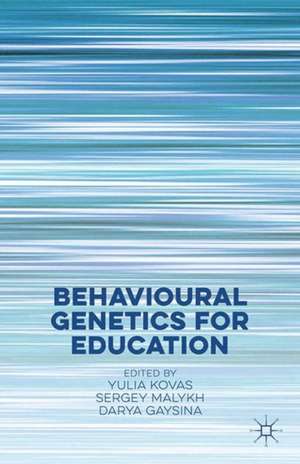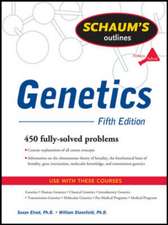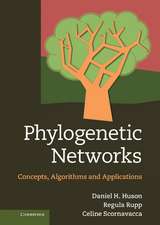Behavioural Genetics for Education
Editat de Y. Kovas, S. Malykh, D. Gaysinaen Limba Engleză Paperback – 9 mai 2016
| Toate formatele și edițiile | Preț | Express |
|---|---|---|
| Paperback (1) | 639.73 lei 6-8 săpt. | |
| Palgrave Macmillan UK – 9 mai 2016 | 639.73 lei 6-8 săpt. | |
| Hardback (1) | 644.49 lei 6-8 săpt. | |
| Palgrave Macmillan UK – 14 mar 2016 | 644.49 lei 6-8 săpt. |
Preț: 639.73 lei
Preț vechi: 752.63 lei
-15% Nou
Puncte Express: 960
Preț estimativ în valută:
122.43€ • 127.65$ • 101.75£
122.43€ • 127.65$ • 101.75£
Carte tipărită la comandă
Livrare economică 21 martie-04 aprilie
Preluare comenzi: 021 569.72.76
Specificații
ISBN-13: 9781349683543
ISBN-10: 134968354X
Pagini: 311
Ilustrații: XIX, 311 p.
Dimensiuni: 140 x 216 mm
Greutate: 0.4 kg
Ediția:1st ed. 2016
Editura: Palgrave Macmillan UK
Colecția Palgrave Macmillan
Locul publicării:London, United Kingdom
ISBN-10: 134968354X
Pagini: 311
Ilustrații: XIX, 311 p.
Dimensiuni: 140 x 216 mm
Greutate: 0.4 kg
Ediția:1st ed. 2016
Editura: Palgrave Macmillan UK
Colecția Palgrave Macmillan
Locul publicării:London, United Kingdom
Cuprins
Foreword; Robert Plomin
Introduction from the Editors
1. How Genetics Can Help Education; Yulia Kovas, Tatiana Tikhomirova, Fatos Selita, Maria G. Tosto and Sergey B. Malykh
2. Gene-environment Interplay and Individual Differences in Psychological Traits; Philipp Barsky and Darya Gaysina
3. Gene-environment Correlations in the Context of Parenting and Peer Relationships; Jeffrey Henry, Michel Boivin and Mara Brendgen
4. Behavioural Genetic Studies of Reading and Mathematics Skills; Stephen A. Petrill
5. Studying Rare Genetic Syndromes as a Method of Investigating Aetiology of Normal Variation in Educationally Relevant Traits; Maja Rodic, Darya Gaysina, Sophia Docherty, Sergey B. Malykh, Kaili Rimfeld, Robert Plomin and Yulia Kovas
6. Self in the Mirror of Behavioural Genetics: Reflections from Twin Studies on Self-esteem and Self-concept; Yu L. L. Luo and Huajian Ca
7. The Nature and Nurture of Wellbeing; Claire M.A. Haworth
8. Molecular Genetic Investigations of Personality: From Candidate Genes to Genome Wide Associations; Anastasia Kazantseva, Sergey B. Malykh, and Elza Khusnutdinova
9. Behavioural Genetic Studies of Child and Adolescent Psychopathology; Elena Gindina and Darya Gaysina
10. Genetic Research on Sleep, Sleep Disturbances and Associated Difficulties; Alice M. Gregory, Michael J. Parsons, Nicola L. Barclay, Philip Gehrman and Rachael E. O'Leary
11. The Role of Genetic and Environmental Risk Factors in the Aetiology of Suicidal Behaviour; Aigul Zainullina, Adelina Valiullina and Elza Khusnutdinova
12. Genetically Informative Investigations of Neurophysiological Traits; Sergey B. Malykh
13. Conclusion: Behavioural Genomics and Education; Yulia Kovas and Sergey B. Malykh
Introduction from the Editors
1. How Genetics Can Help Education; Yulia Kovas, Tatiana Tikhomirova, Fatos Selita, Maria G. Tosto and Sergey B. Malykh
2. Gene-environment Interplay and Individual Differences in Psychological Traits; Philipp Barsky and Darya Gaysina
3. Gene-environment Correlations in the Context of Parenting and Peer Relationships; Jeffrey Henry, Michel Boivin and Mara Brendgen
4. Behavioural Genetic Studies of Reading and Mathematics Skills; Stephen A. Petrill
5. Studying Rare Genetic Syndromes as a Method of Investigating Aetiology of Normal Variation in Educationally Relevant Traits; Maja Rodic, Darya Gaysina, Sophia Docherty, Sergey B. Malykh, Kaili Rimfeld, Robert Plomin and Yulia Kovas
6. Self in the Mirror of Behavioural Genetics: Reflections from Twin Studies on Self-esteem and Self-concept; Yu L. L. Luo and Huajian Ca
7. The Nature and Nurture of Wellbeing; Claire M.A. Haworth
8. Molecular Genetic Investigations of Personality: From Candidate Genes to Genome Wide Associations; Anastasia Kazantseva, Sergey B. Malykh, and Elza Khusnutdinova
9. Behavioural Genetic Studies of Child and Adolescent Psychopathology; Elena Gindina and Darya Gaysina
10. Genetic Research on Sleep, Sleep Disturbances and Associated Difficulties; Alice M. Gregory, Michael J. Parsons, Nicola L. Barclay, Philip Gehrman and Rachael E. O'Leary
11. The Role of Genetic and Environmental Risk Factors in the Aetiology of Suicidal Behaviour; Aigul Zainullina, Adelina Valiullina and Elza Khusnutdinova
12. Genetically Informative Investigations of Neurophysiological Traits; Sergey B. Malykh
13. Conclusion: Behavioural Genomics and Education; Yulia Kovas and Sergey B. Malykh
Notă biografică
Yulia Kovas is Professor of Genetics and Psychology at Goldsmiths, University of London, UK, where she directs InLab – International Laboratory for Interdisciplinary Investigations into Individual Differences in Learning. She is also the director of the Laboratory for Cognitive Investigations and Behavioural Genetics, Tomsk State University (TSU), Russia; co-director of the International Centre for Research in Human Development (TSU); and co-director of the Russian-British Laboratory for Behavioural Genetics, Psychological Institute of the Russian Academy of Education. She directs the Russian School Twin Register (RSTR) and leads the mathematics research direction in the Twins Early Development Study (TEDS), King’s College, London, UK.
Sergey Malykh is Professor of Psychological Institute of the Russian Academy of Education, where he directs the Laboratory for Developmental Behavioural Genetics and co-directs the Russian-British laboratory for Behavioural Genetics. He is also the Head (Academician-Secretary) of the Department of Psychology and Developmental Physiology of the Russian Academy of Education and co-director of the International Centre for Research in Human Development (TSU). The focus of his research is currently on the genetic and environmental origins of variation in psychological and psychophysiological traits. He is the author of more than 300 publications. Among them, Foundation of Behavioural Genetics (1998), the first textbook on this topic in Russia.
Darya Gaysina is Lecturer in Psychology at the University of Sussex, UK and leads the interdisciplinary research program in Genetics and Psychopathology (EDGE Lab). She is also a member of the Rudd Centre for Adoption Research and Practice. Darya obtained a PhD in Human Genetics from the Russian Academy of Sciences. Her research focuses on exploring environmental and genetic factors, and their interplay, in relation to psychopathology across the life course. She is an author of more than 40 peer-reviewed papers and book chapters.
Philipp Barsky' Psychological Institute, Russian Academy of Education, Russia
Michel Boivin, École de psychologie, Pavillon Félix-Antoine-Savard, Université Laval, Canada
Mara Brendgen, Département de psychologie, Faculté des sciences humaines, Université du Québec à Montréal, Canada
Huajian Cai, Institute of Psychology, Chinese Academy of Sciences, China
Sophia Docherty, MRC Social, Genetic & Development Psychiatry Centre, Institute of Psychiatry, Psychology and Neuroscience, King's College London, UK
Darya Gaysina, Rudd Centre for Adoption Research and Practice, School of Psychology, University of Sussex, UK
Elena Gindina, Psychological Institute,Russian Academy of Education, Russia
Claire Haworth, University of Bristol, UK
Jeffrey Henry, École de psychologie, Pavillon Félix-Antoine-Savard, Université Laval, Canada
Philip Gehrman, Department of Psychiatry & Penn Sleep Centre, University of Pennsylvania, USA
Alice M. Gregory, Department of Psychology, Goldsmiths, University of London, UK
Ansatasia Kazantseva, Institute of Biochemistry and Genetics, Ufa Scientific Centre, Russian Academy of Sciences, Russia
Elza Khusnutdinova, Institute of Biochemistry and Genetics, Ufa Scientific Centre, Russian Academy of Sciences, Russia; Bashkir State University, Russia
Yulia Kovas, Tomsk State University, Russia; Psychological Institute, Russian Academy of Education, Russia; Goldsmiths, University of London, UK
Yu L. L. Luo, Institute of Psychology, Chinese Academy of Sciences, China
Sergey B.Malykh, Psychological Institute, Russian Academy of Education, Russia
Rachael E. O'Leary, Department of Psychology, University of Kent, UK
Michael J. Parsons, Mammalian Genetics Unit, MRC Harwell, UK
Stephen A. Petrill, Department of Psychology, Ohio State University, USA
Robert Plomin, MRC Social, Genetic & Development Psychiatry Centre, Institute of Psychiatry, Psychology and Neuroscience, King's College London, UK
Kaili Rimfeld, Goldsmiths, University of London, UK
Maja Rodic, Goldsmiths, University of London, UK
Fatos Selita, Tomsk State University, Russia
Tatiana Tikhomirova, Psychological Institute, Russian Academy of Education, Russia
Maria Tosto' Department of Psychology, Goldsmiths College, University of London, UK
Adelina Valiullina, Institute of Biochemistry and Genetics, Ufa Scientific Centre, Russian Academy of Sciences, Russia
Aigul Zainullina, Institute of Biochemistry and Genetics, Ufa Scientific Centre, Russian Academy of Sciences, Russia
Textul de pe ultima copertă
Educational environments interact with children's unique genetic profiles, leading to wide individual differences in learning ability, motivation, and achievement in different academic subjects – even when children study with the same teacher, attend the same school and follow the same curriculum. This book considers how education can benefit from the recent progress in genetically informative research. The book provides new insights into the origins of individual differences in education traits such as cognitive abilities and disabilities; motivation and personality; behavioural and emotional problems; social functioning; well-being, and academic achievement. Written and edited by international interdisciplinary experts, this book will be of interest to teachers, parents, educational and developmental psychologists, policy makers and researchers in different fields working on educationally-relevant issues.










